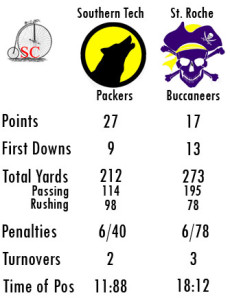Category Archives: Elsewhere
Some years back I met a guy who eagerly billed himself as “the angriest mayor in America.” He was coming to speak to some of our students. He eagerly told me that he hated economists, except this one economist, a guy who unlike all the other economists told it like it really is. He then proceeded to spin some bullshit that, of course, nearly every economist rejects. But he’d found that one guy with an Econ PhD who confirmed his economic beliefs, and that was the evidence he needed to support his claim that he was right and almost all economists were wrong.
Bryan Caplan would surely shake his head in amused or weary acknowledgement of the mayor’s foolishness. And yet Caplan has done the same, in choosing Thomas Szasz as his go-to psychologist. Szasz argued that the mental illness/disease model was wrong, and that “there is no such thing as ‘mental illness’” (source). Although rejected (at least in his more extreme pronouncements) by the majority of the psych profession,* Szasz confirms for Caplan what Caplan wants to be true about psychology. That is, Caplan wants to treat these issues as merely one of preferences. (more…)
You may have seen the meme.

My friend, Jim Babka, of Downsize DC and a gun owner and strong gun rights supporter commented on Facebook that he wished memes came with sources. This is a meme I’m sure he’d like to be true, but he’s expressing his doubt. And with good reason, as I’ll show.
Two caveats before I begin. First, since the meme does not say whether it’s talking about murder rates or total murders, I’ll report both. But murder rate is the only number that really matters. China, with almost 1.4 billion people, could have 100,000 murders per year and have a murder rate of 7.1 per 100,000 people, while Iceland, with 323,000 people, could have just 100 murders per year and have a far higher rate at 31 per 100,000 people. Comparing total murders doesn’t tell you as much about how dangerous a country is as its murder rate.
Second, the data I’m using comes from multiple years and multiple sources, so my conclusions are false in their apparent precision. But more unified data could not plausibly be different enough to change the general conclusion. So here goes.
The United Nations Office on Drugs and Crime (UNODC), as reported by Wikipedia, lists the U.S. as 121st worst in “intentional homicide” rate, at 3.8 per 100,000 population, and 12th worst in total murders, at 12,253 (data from 2013). The data come, variously, from years between 2009 and 2013 inclusive, so for any given year that might go up or down a little bit.
The FBI’s 2014 crime report claims a murder rate of 4.5/100,000, which would put the U.S. at 113th in the UN ranking, and total murders at 14,294, which would put the U.S. at 9th in total murders, both slightly worse than the UNODC rankings.
But whichever data set we use, the U.S. is not 3rd in murders as the meme claims. Strike one.
Now about those cities. They’re strange choices because they’re not the top 4 in total murders in the U.S., which, using the FBI report’s city-level data on “Murder and nonnegligent manslaughter” (which will be a slightly higher number than just murder), would be 1) Chicago, 2) New York, 3) Detroit and 4) Los Angeles. Instead of NYC and LA the meme substitute 9) New Orleans and 15) Washington. Odd, but ok, since it actually makes the meme’s estimate more conservative, by excluding fewer murders. So it’s not that they’re cherry-picking, it’s just that it’s more evidence the meme is just made up by someone not looking at any real data.
Now we can subtracting Chicago’s 411 “murders and nonnegligent homicides, Detroit’s 298, New Orleans’ 150, and Washington’s 105 (all from the FBI report) from the national total of murders we’re left with 13,330 total murders in the U.S. Note that “murders and non-negligent homicides” is a greater number than just murders, so if we’re just interested in murders–the term the meme uses (although I doubt they were trying to be precise in their legal terminology)–we’re subtracting extra non-murder deaths from the total murder rate, overstating the effect of removing those cities from the national murder count, which works in the meme’s favor. And yet 13,330 murders nationally would only drop the U.S. from 9th on the UNODC list(using the FBI’s data) to 11th, still above the UNODC’s ranking of the US at 12th.
But what about the more important murder rate? The U.S. population minus the population of those four cities is 314,842,406. Dividing the 13,330 murders in the rump U.S. by that population, gives a murder rate of 4.2/100,000, or tied for 115th (with Cuba and Tuvalu). Working up from the countries with the lowest murder rate, eliminating those four cities’ murder rates would put the U.S. 103rd from the bottom. Maybe they just kept the 3 and dropped the 100? Strike two.
In short, eliminating those four cities does improve the U.S.’s world ranking in homicide, but not by much.
Both in passing and in conclusion I’ll note that the girl in the picture appears to have both fingers in the trigger guard. Strike three.
This is primarily an Ordinary Times post, but I think it might be amusing even without some of the meta…
KELLY: Welcome to the Ordinary Sport Halftime Report. This is Tod Kelly in the studio with Will Truman and Malcolm Blue. As you may know, this is a special game here in the Ordinary studios because Will here went to Southern Tech, while Mal attended St Roche.
BLUE: Happy to be here, Tod.
TRUMAN: Likewise.
 KELLY: So it’s another week of Eastern Metro Conference action against these two longtime rivals and it has been an exciting thirty minutes of play. The thing that stands out most from the stats sheets are turnovers. Ball control has been a serious issue all aro-
KELLY: So it’s another week of Eastern Metro Conference action against these two longtime rivals and it has been an exciting thirty minutes of play. The thing that stands out most from the stats sheets are turnovers. Ball control has been a serious issue all aro-
TRUMAN: Let me stop you right there, Tod. You act like “turnovers” have been a “general issue” with the implication that they are evenly distributed between teams. But if you look at the stat sheet, you will notice that St Roche has three turnovers compared to two turnovers. Further, from those three turnovers, the Packers have scored twice while the Buccaneers have only scored once. So there hasn’t been a general problem with “both sides” having turnovers in a “general” sense and I don’t think you’re actively portraying the game as it has been played with that implication.
KELLY: I understand that, Will. I’m simply saying that both sides have had some issue…
TRUMAN: There you go again, Tod. “Both sides”? It’s been a problem for St Roche. You can’t look at this game as one with “a lot of turnovers” when it’s the Buccaneers that are having serious problems with ball control.
KELLY: Two turnovers in a half with one being converted into a touchdown is a problem no matter…
TRUMAN: They have three. Do you understand that, Kelly? Are you actually going to look at the stat sheet or are you going to persist with this fiction that everybody has a lot of turnovers so oh well I guess it doesn’t matter.
KELLY: I never said it doesn’t matter, Will. I simply said that there have been a lot of turnovers. If you’d let me finish, I would have said that it’s particularly been a problem for St Roche.
TRUMAN: That still implies that it’s been a problem for Southern Tech, which if you look at things, it really hasn’t. There have been two turnovers, from which seven points were made. That’s simply not comparable to three turnovers from which ten points were made. Not comparable at all.
BLUE: If I could interject here, if you notice at that second turnover, there was an uncalled defensive pass interference that occurred prior to that. So in reality, that shouldn’t have counted. So really, there have been only two turnovers. The third doesn’t count.
KELLY: Doesn’t count, Mal? The “pass interference” you cite was hardly pass interference, and it was on the other side of the field. And your quarterback threw it right into the defender’s hands. There wasn’t even a Packer anywhere in site. The interference had nothing to do with the…
BLUE: Oh, I get it. You argued with him so now you have to argue with me.
KELLY: That’s not what this is about. But fine, let’s move on from turnovers. The score is 27-17. Can we at least agree on that?
BLUE: Only technically, Tod. First, as I mentioned, the pick-six shouldn’t have counted. That brings the score down to 20-17. There was an additional three points scored off that fumble on the sixteen yard line. And a kickoff return that was scored for a touchdown. So if you look at actual offensive points, it’s 17-10 and we’re winning.
TRUMAN: The field goal was scored by the offense, Malcolm. So that’s 17-13. But even setting that aside, it’s not as though only offensive points count. That’s ridiculous.
KELLY: Can’t argue with that. And the score is 27-17. It’s right there on the scoreboard.
BLUE: You can point to your “scoreboard” all you want. The stat sheet is less skewed, and if you look at the stat sheet we have 273 yards to their 212…
TRUMAN: We couldn’t get the yards because you kept giving us the ball and penalty yardarge!
BLUE: Let’s be clear here, both sides have turnovers in this game. So we really shouldn’t be counting those points. We’re winning this game.
KELLY & TRUMAN: YOU ARE NOT WINNING THIS GAME!
BLUE: So of all of the metrics you could be looking at, you’re just going to be fixated on the scoreboard?
KELLY: Sigh. Yes, we are. But let’s move on. Another factor in this game has been penalties. While both sides have six penalties…
TRUMAN: There you go again, Tod, both sides. We have six penalties for 40 yards. And they’re barely penalties like “offsides” and “delay of game”. Meanwhile, they’ve committed several holding and pass interference penalties for 78 yards!
BLUE: 83 yards. Also, to go back to the missed pass interference call…
KELLY & TRUMAN: THAT HAD NO BEARING ON THE OUTCOME OF THE PLAY!
BLUE: A penalty is a penalty, and as long as we’re going to get all high and mighty about who is body-slamming whom in the backfield…
TRUMAN: Look, I’m just saying that you can’t really talk about “penalties” in a general sense because only one of these teams has been having a persist problem breaking the rules in a meaningful way.
KELLY: I know you hate the term, but both teams…
TRUMAN: Ugh!
KELLY: Both teams have had a lot of penalties called on them. You’re right that they haven’t resulted in equal yardage, but…
TRUMAN: So you’re just going to fixate on the one statistic that makes each side look equally bad. Got it.
KELLY: Sigh. No, I never said it was equally bad. But let’s move on to offense. With the exception of that interception, Teddy Barton has been ripping Southern Tech’s secondary apart with 229 total yards and fourteen completions out of 21 attempts…
TRUMAN: Grunt.
KELLY: Now what?
TRUMAN: I know it’s your job to pretend that this game is exciting and that there are things going for both sides, but you really need to be more honest about it. Barton has only 195 passing yards. An additional 36 rushing yards doesn’t necessarily say anything one way or the other about the secondary and in fact could be indicative of scrambling due to the lack of an open receiver. I know you said “229 ‘total’ yards, but that seems pretty clearly an attempt to exaggerate the performance of a quarterback with a scurrilous accusation against our secondary, which has held them to under 200 yards.
KELLY: Which is impressive, I guess?
TRUMAN: It seems telling to me how fixated we are about who has thrown the ball more than whom. In case you missed in, Tod, the Packers are winning this game 27-17. I know it’s inconvenient for you to acknowledge that one team has more points than the other, but you can’t just dance around it talking about unimportant statistics. Reality has a Packer bias here and it’s time we stop pretending otherwise.
BLUE: You’re just fixated on the score because that’s the one place – other than penalties and turnovers – where Southern Tech is doing better than St Roche. Offensive yards really do matter here. As does the fact that we are more highly ranked.
TRUMAN: What does that have to do with anything?
BLUE: We are clearly the better team. We have more quality wins this year. We won far more games – and the EMC title – last year. You cling to that scoreboard as though it is the only thing that matters when, if you look at a deeper level, you’re losing.
TRUMAN: A deeper level like the fact that we are winning the division this year and have a better record? That we have beaten you the last five times we’ve played?
BLUE: We beat you the three before that, but that’s not the point. Earlier in the year we beat Temple Hill and Ole Tex and we were projected to possibly even be in the playoffs!
TRUMAN: You can latch on to those things all you want, but at the end of the day the entrance requirements to get into Southern Tech blow those of St Roche out of the water, with our school having an average SAT score of 1260 compared to theirs of 1220. US World and News Report puts us in the top tier while you are stuck in the second tier. The crime rate at St Roche…
KELLY: Guys, I think we’re getting off-track here. What do you think we can we expect to see in the second half?
BLUE: We will continue to win and the scoreboard will stop being so skewed.
TRUMAN: We’re going to kick their ass because that’s what Carnegie rated Very High Research Universities do to lowly High Research University schools.
KELLY: And with that, thank god, it’s back to Mary on the sidelines…
{Mr Blue assisted with this post.}
Amnesty International has found itself in a controversy over its new draft policy on sex work, that calls for “the highest possible protection of the human rights of sex workers, through measures that include the decriminalisation of sex work.” A group of well-known celebrities has penned a letter denouncing the draft policy, and journalists are voicing their dissent.
At times the misrepresentations of Amnesty International’s claims are blatantly dishonest. Jessica Neuwirth, for example, suggest Amnesty has “been hijacked by proponents of the global sex trade,” and falsely implies that they called prostitution a human right. At no point in the draft policy does Amnesty say prostitution itself is a human right, but that their concern is protecting against human rights abuses against sex workers, including: stigma and discrimination; physical and sexual violence; and criminalization that prevents access to health care.
Others have come to Amnesty’s defense, arguing that we should be listening to the voices* of the sex workers themselves, rather than to Hollywood celebrities. The left often asks us to listen to the voices of the subaltern, but this issue tests their commitment to that principle. They also support treating women as competent adults, except in this issue.
Amnesty’s critics are foolishly putting their idealism above the opportunity to make positive gains for women in the sex trade.
Let’s talk seriously about public policy.
1. The first thing we need to ask is, is the sex trade harmful in ways that justifies a policy response? I say the answer is yes, and that it would be hard to argue against that position. Prostitution can harm the wives of johns, causing them to be infected with sexually transmitted diseases. Prostitutes are at risk for violence, slavery, and sexually transmitted diseases, and this is not a complete list.
2. Can prostitution effectively be eliminated or at least reduced to a rare activity? Some think so, but I believe there is no evidence to suggest it is possible. Sex for remuneration is found, as far as I know, in every human society anthropologists and sociologists have studied, and in the non-human world as well.
3. If we cannot effectively eliminate an activity that has harms justifying a policy response, we have to look to how we can minimize those harms. And the overwhelming evidence from a broad range of prohibited activities demonstrates that prohibition, particularly with strict enforcement, exacerbates rather than reduces the harms. A superior solution is to decriminalize and regulate with an eye towards the health and safety of the participants.
I’m not going to dive into the weeds of what that regulation should look like. There are no doubt better and worse models, but they are models we can learn from and adapt beneficially. But I support Amnesty’s direction on this, and I think anyone who cares about ensuring the safety of sex workers, and cares seriously enough to think seriously about how that can realistically be accomplished will come to the same conclusions.
______________________
*Astute readers will have noticed that all of the news sources to this point have been from the Guardian. There are others, of course, but kudos to the Guardian for publishing essays by voices on each side of this debate. Note that the final link in that sentence actually predates the current contretemps, having been published last year.
So this is pretty great:
It reminds me of some of the theories surrounding teleportation I bat around in my head. The only way I can imagine teleportation working is essentially a cut-and-paste job, in which case it seems likely to me that you are cloning yourself and killing yourself every time you use one. If we’re going with supernatural technology, it seems to me like portals are safer.
Problem: Dogs like to look out the window, but are too short to do so without standing on their hind legs.

Solution: Build a window seat for canines.
So my wife asked, “Do you think you could build a bench so the dogs can sit and look out the window?” Why, of course I can. And what’s more, I have nearly all the materials I need right on hand, in the ridiculous amount of scrap lumber stored beside my shed, some from finished projects, some from projects that never got finished (or even started, beyond a trip to the lumber store), and some from the bunkbeds I built eight years ago and tore down last year. And so it began. (more…)
In Anti-federalist 74, Philadelphiensis wrote,
Who can deny but the president general will be a king to all intents and purposes, and one of the most dangerous kind too-a king elected to command a standing army.
And at the Constitutional Convention, South Carolina’s Charles Pinckney worried that
the Executive powers of the existing Congress might extend to peace and war, etc., which would render the Executive a monarchy, of the worst kind, to wit an elective one.
I understand why they worried about the military power and a standing army, but I’m not grasping why they thought an elected king was worse than a non-elected one. Any thoughts?
 Jerry Kill missed his first full game due to another seizure.
Jerry Kill missed his first full game due to another seizure.
The traditional model is that kids hear lectures in the classroom and do homework at home. Maybe we have it backwards.
I don’t feel so bad frequently citing articles from the Atlantic. Their readers – or their commenters, anyway – are the most intelligent of all! Unless you count Ordinary Times, which scored higher.
The NSA has tried and failed to de-anonymize Tor. Linux godfather Linus Torvalds confirms/denies that the US government approached him about a backdoor to Linux.
Here is what we thought Earth looked like from space, before we actually saw what Earth looked like from space.
Germany’s latest export? Grandmothers.
The French are an unhappy people.
The new IPCC Climate report hat-tips geoengineering. A Texas plant is on it.
The only reason I care about Blackberry possibly selling out to Google or Samsung is the foolish hope that one of them will release a good productivity smartphone.
Increasing distance from Deseret has lead to a greater appreciation for the LDS Church. But then they start talking like this.
An interesting rundown on the progress of women in Utah. I tagged this for reference sake and maybe a future post, but thought I would share it.
Daniel H Bowen and Collin Hitt respond to the recent Amanda Ripley piece on school athletics, arguing that it is actually a good thing. Honestly, I think they might have the better argument, at least for some kids. I remember athletes who couldn’t be bothered to show respect for anybody but their coaches.
David Williams argues that companies should strive to fill their ranks with athletes.

Patrick Hruby argues that NCAA basketball players should go on strike. The argument for paying college football players is weak. The argument for basketball is even weaker. If they want to get paid, and they’re really good, they have a multitude of options. Also, Title IX. You can’t may men’s basketball without also paying women’s.
According to a new study, cursing at work can help you make friends and reduce stress.
Matt Yglesias points out that if we had more dense cities, we’d have less dense elsewheres. This would allow for more things like grass-fed cattle ranching. Though true, it still doesn’t explain how you get the rest of the country to agree to more dense living.
Derek Thompson investigates how spending has changed over the years.
Why are city centers growing more quickly when wealth becomes more suburbanized?
A World Without People: pictures of abandoned places.
Due to a labor dispute an entire Arena Football team was fired during a pregame meal. Stranger still? The on-the-spot replacement team went on to win.
I really hope that makeshift publishing becomes a thing. If we’re going to keep paper books around, the inventory problem has to be dealt with.
China has begun construction of a megacity, planned to be four times the population of New York and twice the size of Jersey. A part of me thinks this is just awesome. Except that I fear it will be disasterous.

